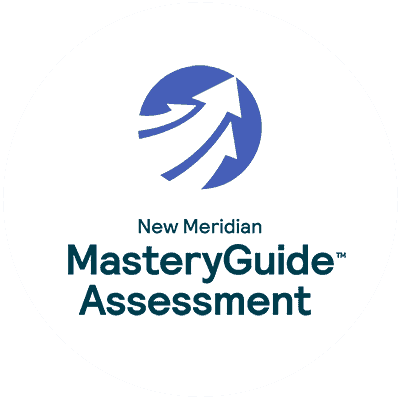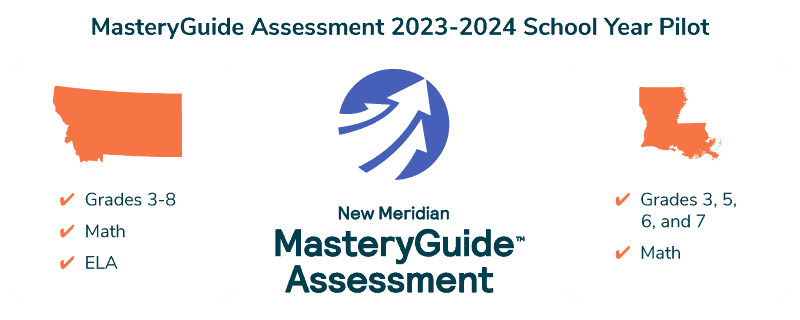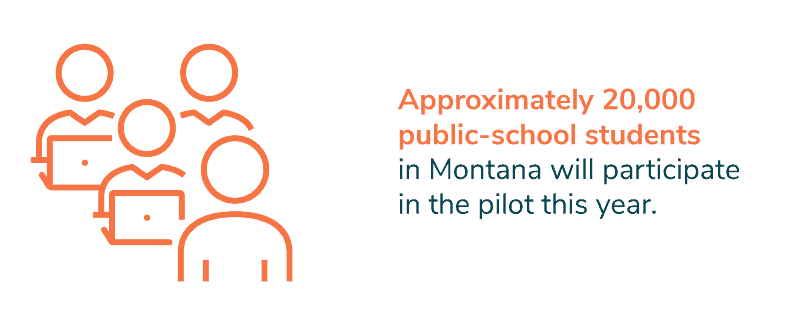
Nearly a thousand educators and experts convened at the National Conference on Student Assessment (NCSA) in New Orleans this June to discuss through-year testing, community engagement, and other vital components of next-generation assessment as states continue to revise their systems in the wake of the pandemic.
Maria Cammack, New Meridian’s vice president of assessment design and development, and Kristopher John, vice president of product strategy, were among the speakers at sessions across the three days, which covered everything from accountability systems to psychometric practices.
Cammack, the former deputy superintendent of assessment and accountability for Oklahoma, led a discussion on the state of through-year assessment, where New Meridian has launched innovative efforts for states and districts. John, who has almost two decades of experience developing state and national assessments, joined a panel of experts to discuss community engagement.
“The NCSA is where our industry goes to discuss the latest ideas, and this year’s conference was especially important,” said Ashley Eden, senior vice president for state partnerships at New Meridian. “As states rethink assessment, we have the opportunity to make transformational improvements, the type of changes that come along only once in a generation. At New Meridian, we want to make the most of that opportunity, and we were very happy to contribute.”
Exploring Through-Year Assessment
Cammack explained New Meridian’s MasteryGuide™ Assessment, a through-year system that delivers 12-14 short tests in math and English language arts each year. The tests, which can be administered in a single class period, are all aligned to local curriculum and can be scored quickly to give teachers real-time feedback. Scores can then be combined to provide a comparable and reliable end-of-year summative score that education leaders can use to make data-driven decisions.
“There is a lot of talk about through-year assessments,” Cammack said. “Rather than talking about what they aren’t, it’s important to think about what they are and what they can do by providing opportunities for continuous feedback throughout the year.”
New Meridian’s MasteryGuide Assessment is currently being piloted in Louisiana and Montana. Elsie Arntzen, superintendent of public instruction in Montana, described her state’s program, called Montana Alternative Student Testing or MAST, as one that focuses heavily on students and teachers.
“There is a very close connection between what is taught in the classroom and what is then being assessed,” she said in a session at the conference, adding “if you can keep students focused right there on the success with the teacher, then it’s a win.”
The pilot programs in both states began last year with a series of surveys and interviews to determine how students, caregivers, teachers, and administrators feel about assessment. The feedback was that stakeholders wanted more timely information that was more useful to students and educators. As Cammack put it, “We need to provide useable insight after each assessment event.”
John says that stakeholder input used to create the MasteryGuide Assessment is vital to ensuring that testing has a positive impact on the classroom and to avoiding unintended consequences. “We’re working to develop products that will have a high degree of utility, and you are not going to be able to build something that has high utility without actually speaking to the audience and understanding what their goals and pain points are,” he said in an interview. “That’s an important part of this stakeholder input process.”
At NCSA, John participated in a panel discussion run by Education First, a national strategy and policy organization, designed to explore how state leaders, assessment companies, and others are involving community partners in assessment design. The group discussed the need to identify and understand stakeholder concerns, how to ensure that new assessment solutions address those issues and that states and vendors have the resources for proper implementation. In the panel, John spoke on how New Meridian’s new pilot program employed EquityXDesign principles, and speaking to parents, caregivers, students, and teachers played a significant part. As John said, “We made an effort to include voices that are not usually included in the design process.”
Education First runs a grant program to encourage innovation in education—including through-course assessment—that has helped enable some of New Meridian’s work.
“Education First is dedicated to facilitating real, practical change,” John said. “Their support enables companies like ours to take risks, to innovate and to learn—and those are the building blocks needed to create the next generation of assessment.”
New Meridian’s MasteryGuide Assessment

New Meridian’s MasteryGuide Assessment was piloted in grades 5 and 7 during the 2022-2023 school year. In Montana, testing was administered in math and English language arts (ELA). In Louisiana, the assessments were math only. Along the way, extensive surveys and research were conducted to refine the system.
“We talk a lot about creating a continuous feedback loop for educators, and we try to model that same feedback loop in our development process,” Cammack said. “We deployed rapid testing this spring based on empirical data to improve our test design. Thinking about this as an ongoing test administration system has forced us to become more nimble in our development, which enables us to incorporate stakeholder feedback more readily.”
The next step will be to expand the pilot in both states during the 2023-2024 school year. In Montana, it will expand to grades 3-8 in math and ELA. In Louisiana, it will include math in grades 3, 5, 6, and 7. New Meridian is also recruiting additional districts in other states for free pilot programs.

Overall, Cammack said, the MasteryGuide Assessment represents an exciting innovation that promises to make a deeper connection between assessment and classroom learning. “We have a lot to learn from our own investigation and partnerships with stakeholders,” she said, “but I am very excited about the things that we have learned and how the design is shaping up.”
In Montana, where the state started with 5,000 students participating in the pilot and now has about 20,000, or roughly 13% of the state’s public-school population, Arntzen calls it an evolutionary process.

“Be fearless,” she told a room full of assessment officials and experts. “There are so many things that are occurring in education and in our communities right now as we’re healing. We can’t say we’ll do it tomorrow. Be fearless and do it today.”


